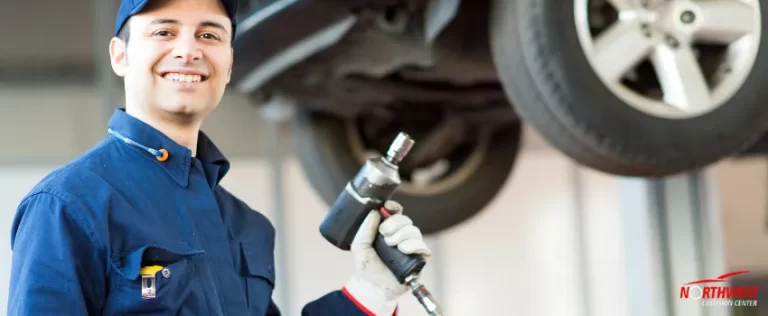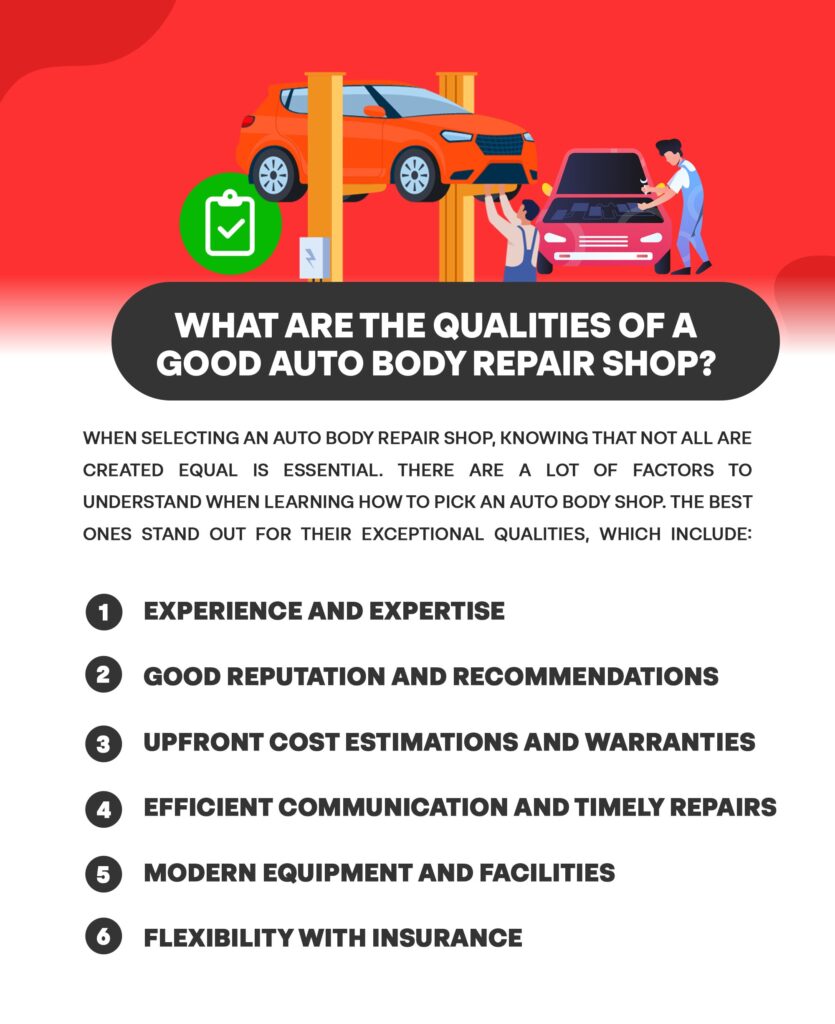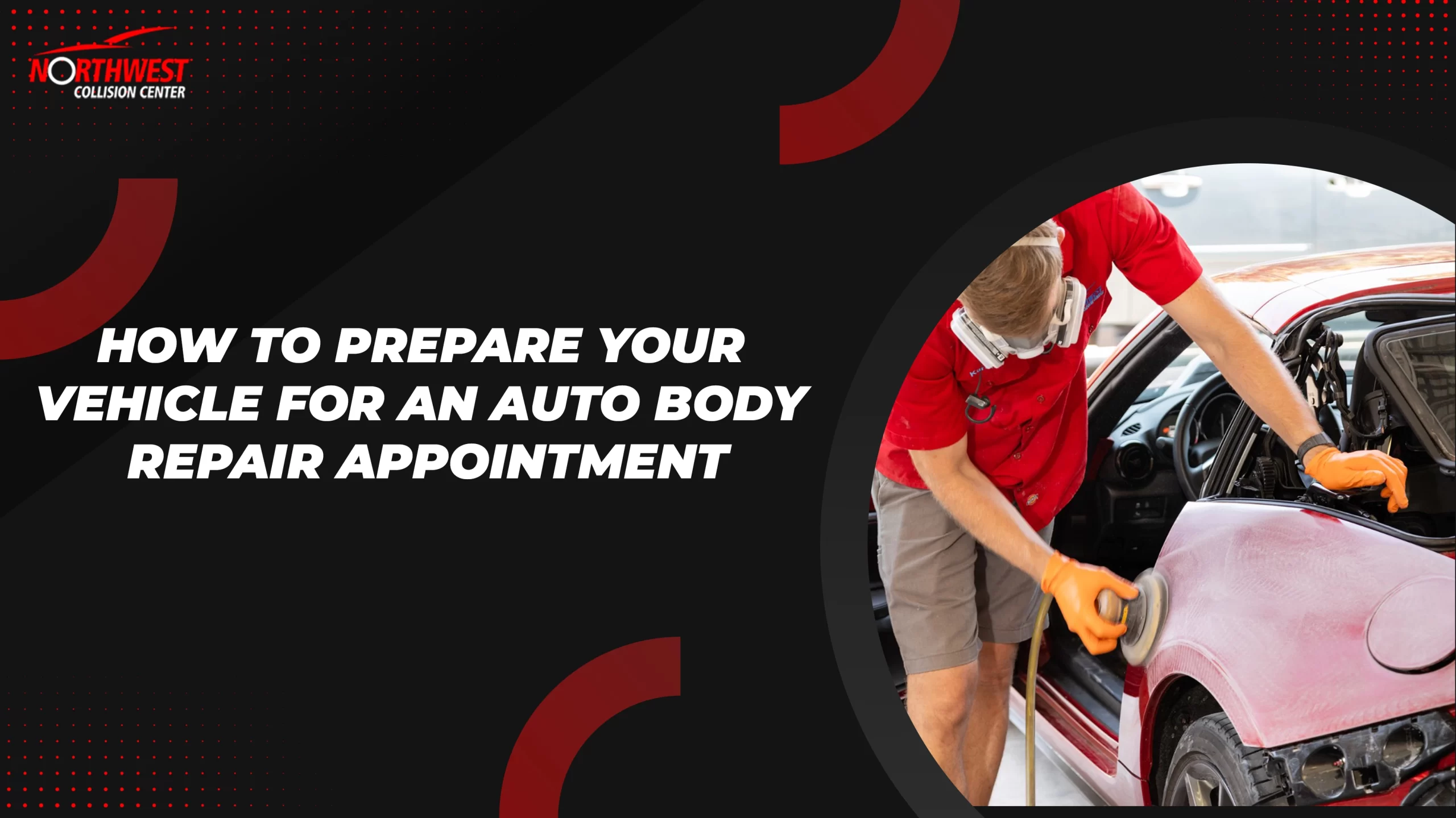Whether it’s a minor fender bender or a more significant collision, knowing how to choose an auto body shop is essential to restore your vehicle to its pre-accident condition. However, selecting the best auto body shop can be overwhelming with so many options available.
But fret not! In this comprehensive guide, we will walk you through choosing an auto body repair shop that suits your needs. So, let’s get started and learn the ropes of how to choose an auto body shop now!
Learning About Auto Body Shops
An auto body shop is a specialized facility that repairs and restores vehicles damaged in accidents or other incidents. These shops employ skilled technicians with expertise in fixing various types of vehicle damage, including dents, scratches, frame damage, and more.
Auto body shops can range from small, independent garages to extensive, state-of-the-art facilities, depending on their services and capabilities. Some auto body repair shops also partner with insurance companies to provide seamless repair processes for their customers. Now that you know more about auto body shops, it’s time to find out how to choose an auto body shop for your needs.
Qualities of a Good Auto Body Repair Shop
When learning how to find a good auto body repair shop, knowing that not all are created equal is essential. There are a lot of factors to understand when learning how to pick an auto body shop. The best ones stand out for their exceptional qualities, which include:
1. Experience and Expertise
Choosing an auto body repair shop with considerable experience in the industry is a smart move. Seasoned shops have likely seen and fixed a wide range of vehicle damages, honing their skills and knowledge in the process. Look for a shop with a proven track record of successfully handling repairs similar to your vehicle needs.
Moreover, expertise is important when learning how to choose the best auto body shop for your car repair needs. The auto body shop you choose should have technicians trained and certified in the latest repair techniques. Their expertise ensures that your vehicle is in capable hands, giving you peace of mind throughout the repair process.
2. Good Reputation and Recommendations
Another essential quality to look for in an auto body repair shop is a good reputation. You can check online reviews and ask for recommendations from friends, family, or even your insurance provider to gauge the shop’s reputation.
If a shop has been in the business for a while and has a solid customer base, it’s a good sign that it consistently delivers satisfactory results. On the other hand, if a shop has a slew of negative reviews and complaints, it’s best to steer clear and explore other options.
3. Upfront Cost Estimations and Warranties
Transparency is vital when it comes to learning how to find a good auto body repair shop. So, prioritize shops that provide upfront and accurate cost estimations when learning how to choose the best auto body shop for your needs. A good shop will thoroughly assess the damage to your vehicle and give you a detailed breakdown of the expected expenses for parts and labor. This helps you make an informed decision and avoid any unpleasant financial surprises.
Additionally, a warranty on the repair work indicates a shop’s confidence in its services. A good auto body repair shop should offer a reasonable warranty that covers any issues arising from the repair process. This shows they are willing to take responsibility if something goes wrong, giving you added protection for your investment.
4. Efficient Communication and Timely Repairs
Time is of the essence when your vehicle is in the shop for repairs. A good auto body repair shop understands this and prioritizes efficient communication, keeping you updated on the progress of the repairs. They should be responsive to your inquiries and provide realistic timelines for when you can expect your vehicle to be ready.
5. Modern Equipment and Facilities
Keeping up with the advancements in the automotive industry is a mark of a good auto body repair shop. When learning how to pick an auto body shop, look for one with modern equipment and facilities. This can significantly affect the quality and efficiency of the repair process.
Advanced tools and technology enable auto body shops to perform repairs with greater precision and accuracy, ensuring your vehicle is restored to its original condition as seamlessly as possible. So, when you visit a shop, look around and see if they have the necessary equipment to handle your specific repair needs.
6. Flexibility With Insurance
If your vehicle’s repairs are covered by insurance, consider auto body repair shops that are flexible in working with your insurance provider. These shops have experience in navigating the insurance claims process, which can save you time and effort.
Coordinating with your insurance can be a hassle if they have limited choices for auto body repair shops. However, opt for a shop in their network of preferred providers. The repair process can be more streamlined, as these shops often have established relationships and protocols with the insurance companies.
The Bottom Line
Knowing how to choose an auto body shop for your needs is a decision that can significantly impact the outcome of your vehicle’s repairs. To recap, look for a shop with a solid reputation, experienced technicians, and a focus on customer communication and timeliness.
Don’t forget to consider those that offer upfront cost estimates, warranties, modern facilities, and flexibility with insurance. By carefully weighing these factors and researching, you can make a confident choice and entrust your vehicle to a shop that will get you back on the road in no time.
Revitalize Your Car With the Help of Northwest Collision Center
Accidents happen, and when they do, you want the best care for your vehicle. If you’re looking for quality auto body repair in Largo, FL, look no further than Northwest Collision Center. Our experienced team will have your car back on the road in no time. Contact us today for a free estimate!











